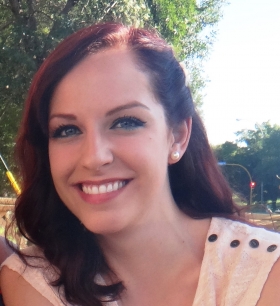Ashley Major, a second-year law student, was one of four Canadian women to receive a $7,500 national scholarship from the Soroptimist Foundation of Canada, an organization that provides educational funding to women in graduate studies for the advancement of human rights and the status of women.
Major says growing up on a farm outside of St. Brieux, Saskatchewan with her parents and three sisters meant a busy family life, one actively engaged in women’s rights.
“My parents made sure to instill strong feminist values in all of us,” she says. “I knew I wanted to pursue a career in women's rights when I started volunteering at a women's shelter. I became angry, and inspired, by the blatant abuses that these individuals had faced. I knew I wanted to work to alleviate such occurrences in the future.”
A passionate advocate for addressing injustices perpetuated against women, Major received a $10,000 McDougall Gauley Research Scholarship in her second year of undergrad at the University of Regina. Her project examined the barriers that women face when attempting to reintegrate back into society after serving time in jail. She also completed an internship at Independent Academic Research Studies, a social justice think-tank in London, UK, where she investigated the barriers experienced by police and prosecutors when investigating allegations of rape in London. She focused on the effect that rape myths had upon the investigative and prosecutorial processes.
"I believe a law degree opens up so many avenues for advocacy. As a domestic violence counselor, I once worked with a client whose ex-partner failed to bring her child back from an agreed upon visit in another province. With my level of training, I could only do so much work on her file before I had to turn it over to a lawyer."
As a domestic violence counselor at the Regina Transition House, she counseled women who had experienced domestic abuse, and helped attend to their particular needs. She also volunteered as a sexual assault line counselor for the Regina Sexual Assault Centre, worked as the Primary Crime Prevention Coordinator for the John Howard Society of Saskatchewan, and in this role taught students in Grades 4-8 about the consequences of criminal activity.
Her undergraduate degree in human justice (with Great Distinction and the President’s Medal for commitment to academic achievement and to community engagement) set her on a path to law school, where her clinic work to advance rights caught the eye of the foundation members.
She volunteered with Pro Bono Students Canada at a sex worker drop-in clinic and worked with a lawyer to provide legal information to the women there. Major is assisting to expand a current Pro Bono Students Canada low-income will-drafting project to the sex workers from her placement.
Last year, she was a 1L representative on the Women and the Law Committee, where she helped organize several mentoring and networking events for female law students. She also joined a working group, joint with the David Asper Centre for Constitutional Rights and the International Human Rights Program (IHRP), that conducted research on violence against women and the potential effects of the new prostitution laws.
Her recent summer IHRP placement was at Human Rights Watch, Women's Right's Division, in New York City. Major researched how worldwide instances of sexual assault and rape are violations of international law.
“I believe a law degree opens up so many avenues for advocacy. As a domestic violence counselor, I once worked with a client whose ex-partner failed to bring her child back from an agreed upon visit in another province. With my level of training, I could only do so much work on her file before I had to turn it over to a lawyer. With a background in law, I know I will be able to be the one advocating for my clients.”
It’s a long way from the 500-person village on the Prairies, but for now, this is where she’ll be.
“Life is very different here, but I love it…Though I had lived in much larger centres over the last several years, Toronto was a bit of a culture shock. I really love the anonymity and the never-ending social options that come along with living in a city. I would never trade my years spent living and working on the farm, because I know those experiences made me into who I am. At this point in my life though, living in a dynamic city like Toronto is exactly what I need.”
Ashley says looks forward to learning more about the law and its intersection with women's rights and interests over the course of her degree.
“I foresee myself working on women's human rights issues in my line of work; being able to be engaged with a problem from start to finish is very exciting for me.”

